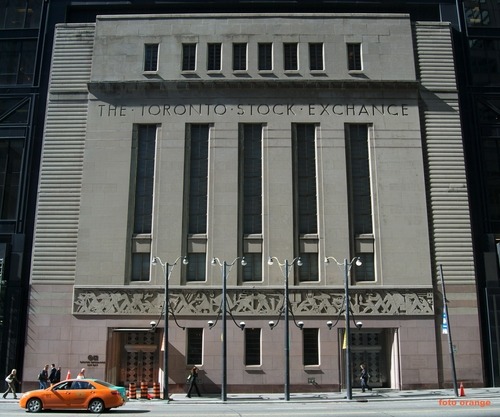This blog post discusses the question of whether bitcoins are “securities” in Ontario. It was written by Addison Cameron-Huff, a lawyer who specializes in Bitcoin. He highly recommends that you seek legal advice on issues related to securities law.

Photo from http://www.flickr.com/photos/foto_orange/11921659744/
If bitcoins are “securities” under Ontario securities law then there are important implications for anyone engaged in trading them.
According to the Ontario Securities Commission (the regulator of securities):
“In general, firms must register with the OSC if they conduct any of the following activities in Ontario:
-are in the business of trading in, or advising on, securities. This is referred to as the “business trigger” for registration.
-act as an underwriter or as an investment fund manager
-conduct trading activities involving commodity futures contracts or commodity futures options.
Individuals must register if they:
-trade, advise or underwrite on behalf of a registered dealer or adviser, or
-act as the ultimate designated person or chief compliance officer of a registered firm.
The main restriction on securities activities can be found in section 25(1) of the Ontario Securities Act:
"Unless a person or company is exempt under Ontario securities law from the requirement to comply with this subsection, the person or company shall not engage in or hold himself, herself or itself out as engaging in the business of trading in securities unless the person or company, a) is registered in accordance with Ontario securities law as a dealer or b) is a representative registered in accordance with Ontario securities law as a dealing representative of a registered dealer and is acting on behalf of the registered dealer”
Securities Act, R.S.O. 1990, c. S.5, s. 25(1).
But what is a “security”? “Security” is a very broadly defined term that includes the following 19 sub-definitions:
“(a) any document, instrument or writing commonly known as a security,
(b) any document constituting evidence of title to or interest in the capital, assets, property, profits, earnings or royalties of any person or company,
© any document constituting evidence of an interest in an association of legatees or heirs,
(d) any document constituting evidence of an option, subscription or other interest in or to a security,
(e) a bond, debenture, note or other evidence of indebtedness or a share, stock, unit, unit certificate, participation certificate, certificate of share or interest, preorganization certificate or subscription other than,
(i) a contract of insurance issued by an insurance company licensed under the Insurance Act, and
(ii) evidence of a deposit issued by a bank listed in Schedule I, II or III to the Bank Act (Canada), by a credit union or league to which the Credit Unions and Caisses Populaires Act, 1994 applies, by a loan corporation or trust corporation registered under the Loan and Trust Corporations Act or by an association to which the Cooperative Credit Associations Act (Canada) applies,
(f) any agreement under which the interest of the purchaser is valued for purposes of conversion or surrender by reference to the value of a proportionate interest in a specified portfolio of assets, except a contract issued by an insurance company licensed under the Insurance Act which provides for payment at maturity of an amount not less than three quarters of the premiums paid by the purchaser for a benefit payable at maturity,
(g) any agreement providing that money received will be repaid or treated as a subscription to shares, stock, units or interests at the option of the recipient or of any person or company,
(h) any certificate of share or interest in a trust, estate or association,
(i) any profit-sharing agreement or certificate,
(j) any certificate of interest in an oil, natural gas or mining lease, claim or royalty voting trust certificate,
(k) any oil or natural gas royalties or leases or fractional or other interest therein,
(l) any collateral trust certificate,
(m) any income or annuity contract not issued by an insurance company,
(n) any investment contract,
(o) any document constituting evidence of an interest in a scholarship or educational plan or trust, and
(p) any commodity futures contract or any commodity futures option that is not traded on a commodity futures exchange registered with or recognized by the Commission under the Commodity Futures Act or the form of which is not accepted by the Director under that Act,
whether any of the foregoing relate to an issuer or proposed issuer”Securities Act, R.S.O. 1990, c. S.5, s. 1(1).
Some of the sub-definitions clearly can’t apply to bitcoins (e.g. “any certificate of interest in an oil, natural gas or mining lease, claim or royalty voting trust certificate”). Others, such as “investment contract” require the assistance of case law to interpret.
There’s very little information available about the position of the Ontario Securities Commission. An Ottawa Citizen article published on February 25th, 2014 notes that “[t]he Ontario Securities Commission has said it is closely monitoring developments pertaining to digital currencies”.
A securities lawyer can help you understand whether Ontario’s securities regulation regime is applicable to your Bitcoin business.
 Made in Canada
Made in Canada